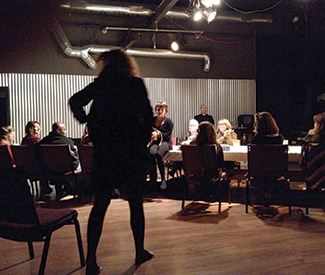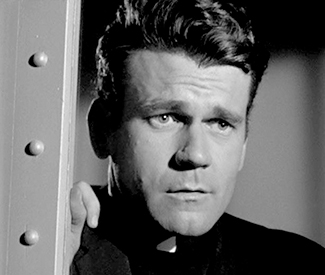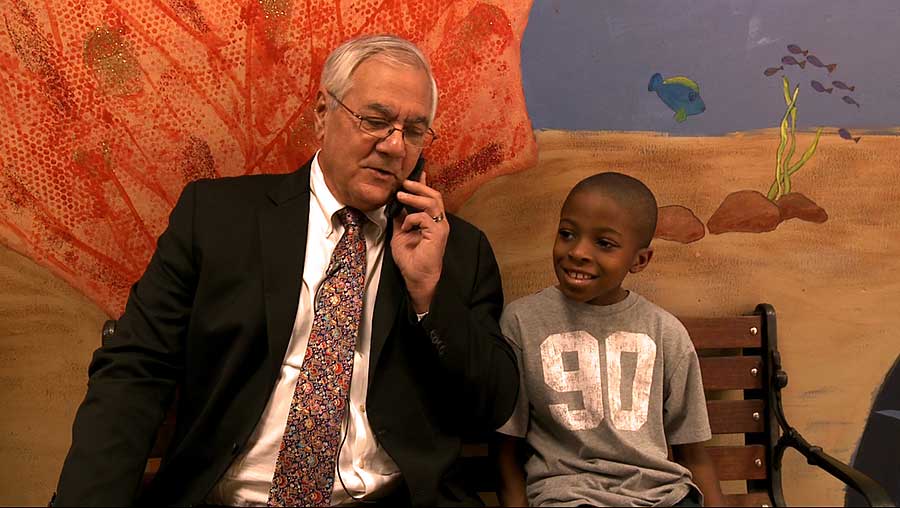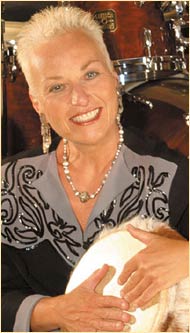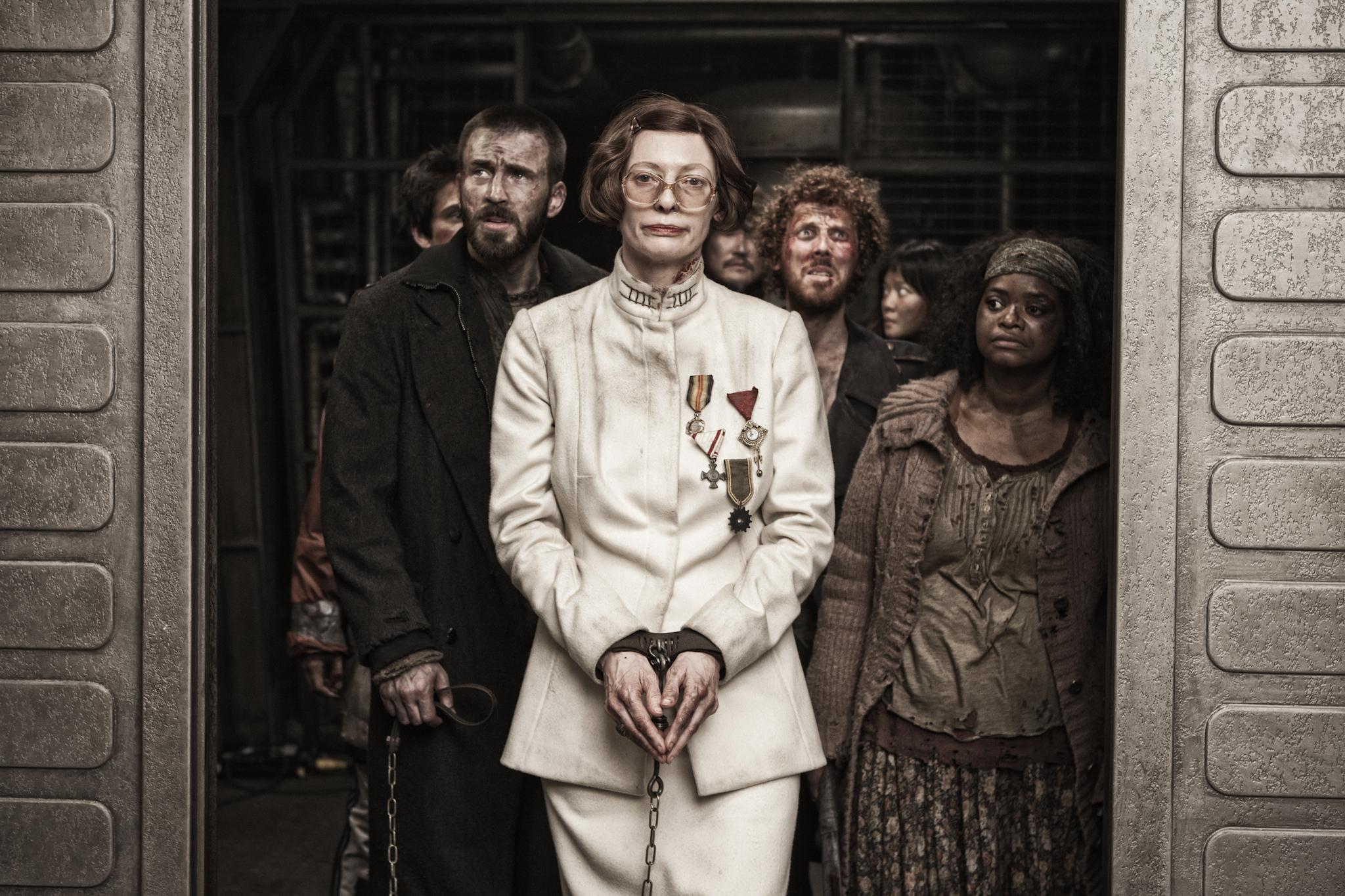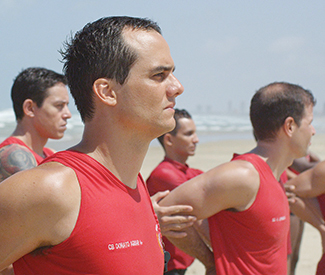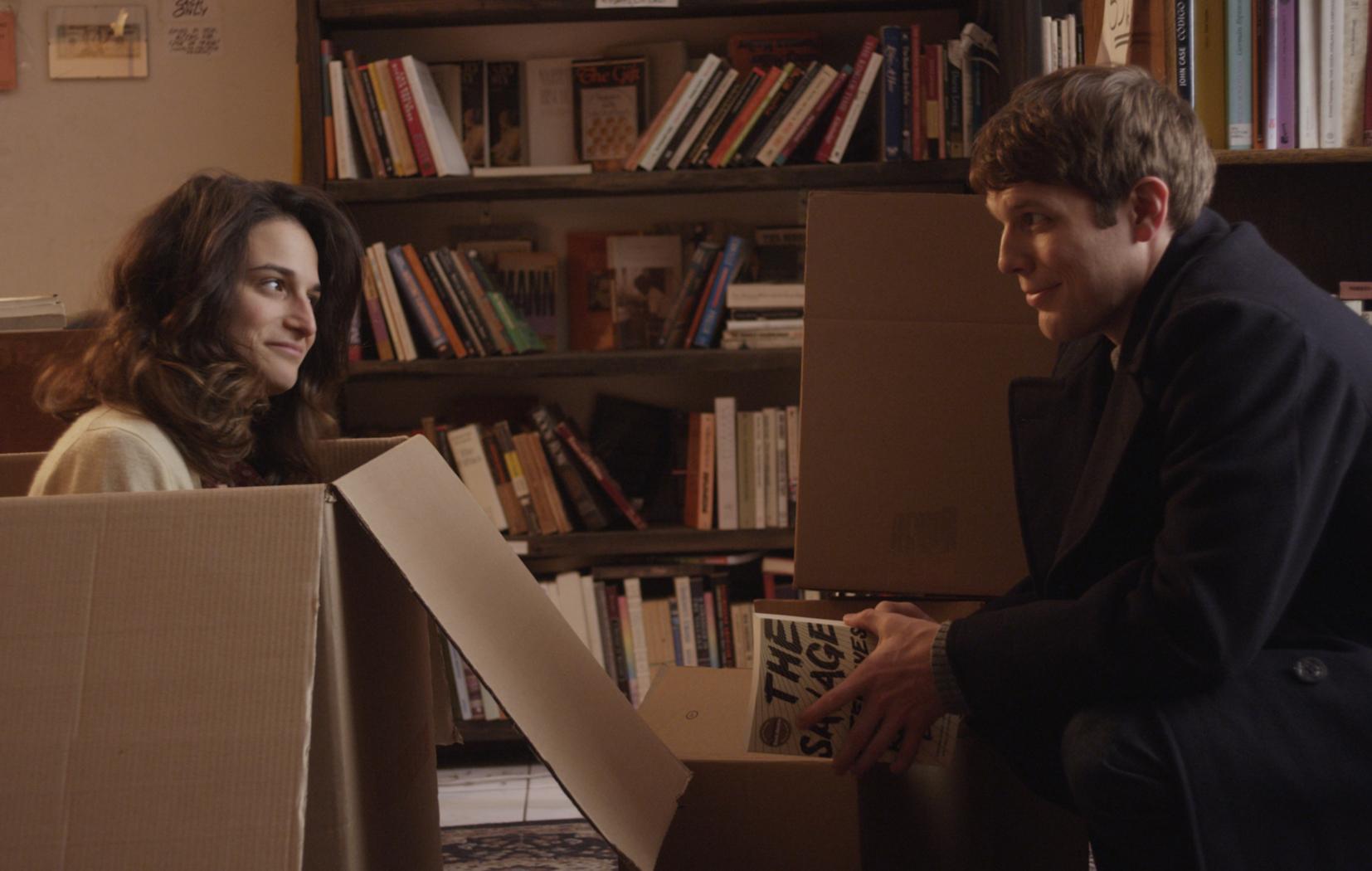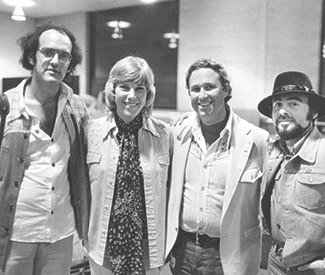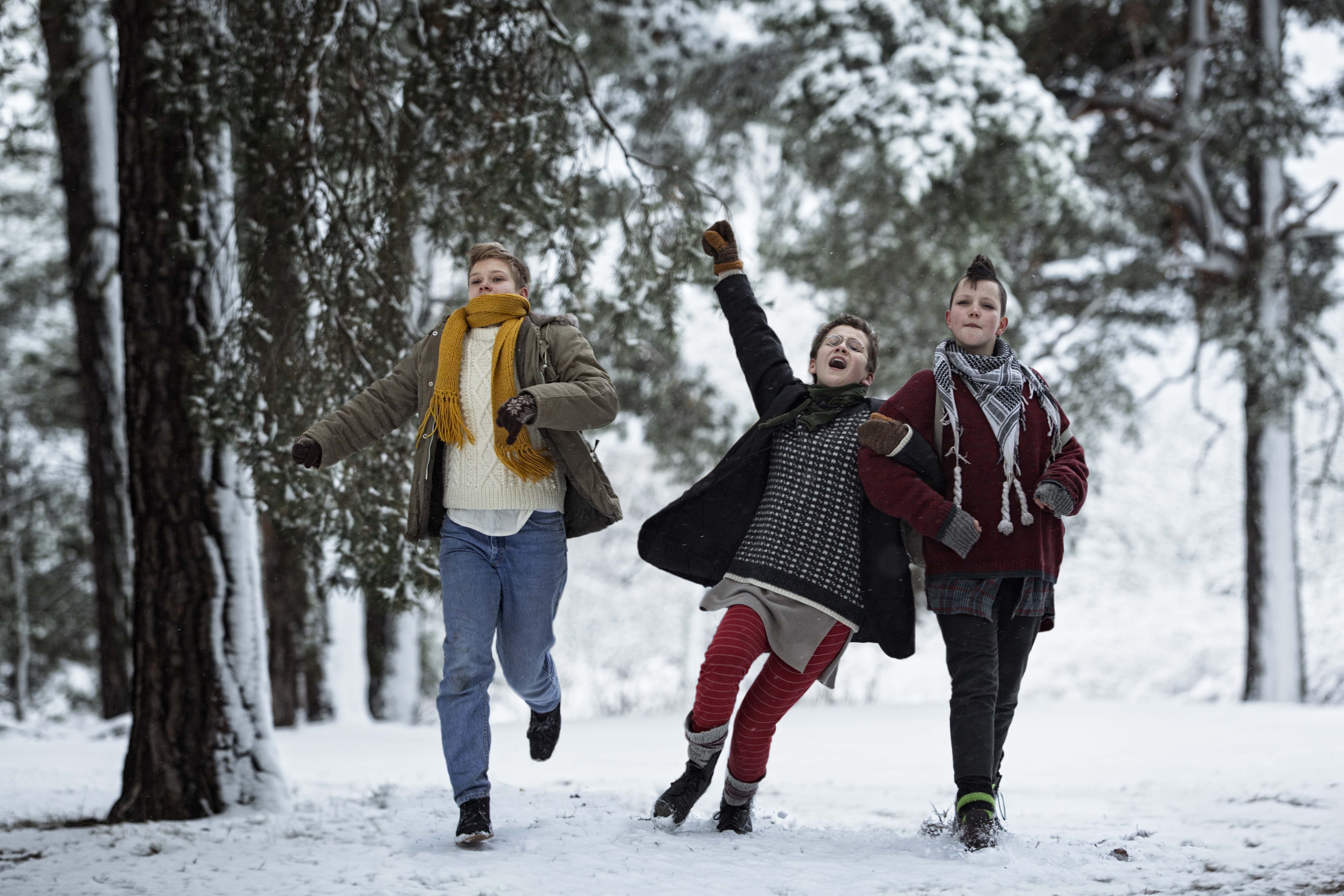Hey gorgeous queer person (and friends)! There is way too much to do this year, as always. Don’t be scared. Dive right into the party and performance bounty that is Pride.
ONGOING
>2014 National Queer Arts Festival: The Queer Cultural Center’s annual LGBT celebration occupies venues across the city — including the African American Art & Culture Complex, Brava Theater, CounterPULSE, Mission Cultural Center, S.F. LGBT Community Center, SOMArts, and many others — in a monthlong multidisciplinary cavalcade of queerness that features films, plays, literary readings, live music, art shows, a comic-con, and much more. Through July 6, www.qcc2.org/national-queer-arts-festival. Multiple SF Locations, Multiple addresses, SF, N/A.
>Anthony Friedkin: The Gay Essay: In this exhibit honoring the 45th anniversary of the Stonewall Riots, more than 75 of the California photographer’s classic snapshots depict the SF and Los Angeles gay scenes in the late ‘60s and early ‘70s. Tuesdays-Sundays. Continues through Jan. 11. de Young Museum, 50 Hagiwara Tea Garden Drive, SF, 750-3600, www.deyoungmuseum.org.
>The Bakla Show 3: Part of an ongoing attempt to reclaim the Tagalog term “bakla” from pejorative common use, this third installment in Bindlestiff’s LGBT production series focuses on the specific struggles faced by queer F/Pilipin@ youth. Thursdays-Saturdays, 8pm Continues through June 28, $10-$20, thebaklashow.wordpress.com. Bindlestiff Studio, 185 Sixth St., SF, 255-0440, www.bindlestiffstudio.org.
>Body, Body, Bodies…: Nearly 30 artists weigh in on the subject of body politics in this multidisciplinary group show presented by the 2014 National Queer Arts Festival. Tuesdays-Saturdays. Continues through June 28. SOMArts Cultural Center, 934 Brannan, SF, 863-1414, www.somarts.org.
>Devil Boys from Beyond: 1950s sci-fi gets campy and queer in this cross-dressing alien invasion comedy written by Buddy Thomas and Kenneth Elliott. Wednesdays-Sundays. Continues through June 28, $25-$45. New Conservatory Theatre Center, 25 Van Ness, SF, 861-8972, www.nctcsf.org.
>Frameline38: The largest, most widely recognized LGBT film festival in the world kicked off its 38th year with a showing of The Case Against 8, Ben Cotner and Ryan White’s new documentary about the successful fight to overturn California’s ignominious Prop 8. The rest of the fest is fleshed out with queer cinema from all over the world, with screenings at the Roxie, Victoria, and Castro Theatres in S.F., plus select shows at Berkeley’s Rialto Cinemas Elmwood. Through June 29, $8-$35 per film, www.frameline.org.
>The Homosexuals: Chicago playwright Philip Dawkins makes his first foray onto a Bay Area stage with this witty tale about a group of gay friends. Wednesdays-Saturdays, 8pm. Continues through June 28, $25-$45. New Conservatory Theatre Center, 25 Van Ness, SF, 861-8972, www.nctcsf.org.
>Pansy: Actor Evan Johnson and director Ben Randle bring their collaborative one-man play — a Peter Pan-inspired portrayal of a gay club kid in ‘90s SF — back to the stage for a brief run at the end of Pride Month. Wednesdays-Saturdays, 8pm Continues through June 28, $15-$20. New Conservatory Theatre Center, 25 Van Ness, SF, 861-8972, www.nctcsf.org.
>Todd Trexler: A Solo Exhibition of His Legendary Posters: A show honoring the late LGBT artist whose 1970s posters for the Cockettes and Nocturnal Dream Shows at the Palace Theater in North Beach have become collectors’ items. Tuesdays-Saturdays. Continues through June 30, www.toddtrexlerposters.com. Magnet, 4122 18th St., SF, 581-1600, www.magnetsf.org.
WEDNESDAY/25
>Bi-B-Q 2014: Bi-Focused: Bisexual potluck picnic and community meetup. Wed., June 25, 4-6:30pm, free, www.facebook.com/BiBQSF. Dolores Park, 566 Dolores, SF, 554-9529, en.wikipedia.org/wiki/Dolores_Park.
>Booty Call: One of the cutest parties in the Castro, with drag goddess Juanita More and very fashionable guests. Wednesdays, 9pm, $3, bootycallwednesdays.com. Q Bar, 456 Castro, SF, 864-2877, www.qbarsf.com.
>BroMance: A Night Out for the Fellas: Wednesdays, 9pm, free. Beaux, 2344 Market, SF, 863-4027, www.beauxsf.com.
>David Boies & Theodore Olson: The Case for Marriage Equality: Wed., June 25, 7pm, $35. SF LGBT Community Center, 1800 Market, SF, 865-5555, www.sfcenter.org. In 2009, the pair seemed an unlikely legal team to overturn Caliornia’s ban on same-sex marriage — but now, one year after the elimination of Prop 8, the lawyers discuss their success in “Redeeming the Dream: The Case for Marriage Equality.” Also Thu/26 at Fairmont Hotel (see listing).
>Dazzle: Broadway … Our Way!: The SF Gay Men’s Chorus performs showtunes (from Avenue Q, Dreamgirls, Rent, Oklahoma!, West Side Story, and more) with Tony-winning special guest Laura Benanti. June 25-27, 8pm, $25-$60, sfgmc.org. Nourse Theatre, 275 Hayes, SF, 563-2463, www.cityarts.net/the-nourse.
>The Dream Queens Revue’s Annual Pride Drag Show: Classic drag extravaganza with Collette LeGrande, Ruby Slippers, Sophilya Leggz, Bobby Ashton, Sheena Rose, Kipper, and Joie de Vivre. Wed., June 25, 9:30pm, free, dreamqueensrevue.com. Aunt Charlie’s Lounge, 133 Turk, SF, 441-2922, www.auntcharlieslounge.com.
>House of Pride Jamboree Fundraiser: Featuring comedy, poetry, drag, and music by Pam Benjamin, S.J. Cruz, Sheena Rose, The Screaming Streisands, and more. Wed., June 25, 6-9pm, $10, www.facebook.com/HOP.RADIO.SF. Mutiny Radio, 2781 21st St., SF, www.mutinyradio.fm.
>Love Is Queer: The Gay American Songbook: Circus, drag, and cabaret combine for this performance (for audiences 18+) with Honey Mahogany, M. Lee, Eli Conley’s Queer Choir, Kim Lembo, and more. June 25-26, 8pm, $15-$25. Theater at the Children’s Creativity Museum, 221 Fourth St., SF, 820-3320, www.creativity.org.
>OutLoud SF: StoryCorps launches a new program to record LGBT stories with a West Coast kickoff party featuring Dave Isay, Baruch Porras-Hernandez, Jaime Cortez, Matt Leavitt, Morgan, and live music by Mad Noise. Wed., June 25, 7-10pm, free with RSVP (required), outloud-sf.eventbrite.com. The Chapel, 777 Valencia, SF, 551-5157, www.thechapelsf.com.
>>>Pullin’ Pork for Pride 10th Annual Pride Kickoff: The SF Bay Guardian (that’s us!) presents this always raucous happy hour BBQ benefiting the Transgender Law Center. Free pulled pork sammies — veggie option, too! — from Soulgroove, Hard French soul DJs Carnita and Brown Amy, $15 all the New Belgium beer you can drink. And lots of cool peeps, of course. Wed., June 25, 6-9pm, free. Pilsner Inn, 225 Church, SF, 621-7058, www.pilsnerinn.com.
>What?: Techno fun with resident DJ Tisdale and guests. Wednesdays, 7pm, free. Lookout, 3600 16th St., SF, 703-9751, www.lookoutsf.com.
THURSDAY/26
>22nd Annual Ms. & Mr. Safe Latino Competition: Thu., June 26, 7pm, $10. Marines’ Memorial Theatre, 609 Sutter, SF, 673-6672, www.marineclub.com/theatre.php.
>California Academy of Sciences: Pride NightLife: The gorgeous science museum’s big Pride party hosts a DapperQ fashion show showcasing local queer designers who cater to an “unconvemtionally masculing” demographic. Featuring DJs Carnita, Brown Amy, Rapid Fire, and Juanita More, plus a drag show hosted by Heklina, a presentation by Dr. Carol Queen of the Center for Sex & Culture, planetarium shows, and a lot more. Thu., June 26, 6-10pm, $10-$12. California Academy of Sciences, 55 Music Concourse, SF, 379-8000, www.calacademy.org.
>David Boies & Theodore Olson: The Case for Marriage Equality: Thu., June 26, 6pm, $26, www.bit.ly/caseforequality. The Fairmont Hotel, 950 Mason, SF, 866-540-4491, www.fairmont.com/sanfrancisco.
>Fauxgirls!: 13th Anniversary Celebration: The long-running drag revue and supperclub cabaret moves to the fourth Thursday for a special party to kick off S.F. Pride weekend. Thu., June 26, 7pm, free (with $20 minimum food/cocktail purchase), www.fauxgirls.com. Infusion Lounge, 124 Ellis, SF, 421-8700, www.infusionlounge.com.
>Horse Meat Disco: London’s notorious gay disco DJs take over Public Works for the ever-freaky, totally wonderful Odyssey dance party. With local DJs Robin Simmons and Hi, Today. Thu., June 26, 9pm, $10-$15. Public Works, 161 Erie, SF, 932-0955, www.publicsf.com.
>Loft Apartment: Fun tunes for fuzzy dudes with DJs Tuna and Tamale Rinwald. Thu., June 26, 7pm Lone Star Saloon, 1354 Harrison, SF, 863-9999, www.lonestarsf.com.
The Monster Show: Goofy-awesome thematic weekly drag performances with Cookie Dough, DJ MC2, and guests. Thursdays, 10pm, $5, www.cookievision.com. The Edge, 4149 18th St., SF, 863-4027, www.edgesf.com.
>S.F. Gay Pride All Star Comedy Show: Charlie Ballard and Hella Gay Comedy say TTFN with a free, all ages farewell show featuring Karinda Dobbins, Kelly Doyle, Ash Fisher, Justin Lucas, Sampson McCormick, and Zachary Toczynski. Thu., June 26, 8pm, free, www.facebook.com/HellaGayComedyShow. Magnet, 4122 18th St., SF, 581-1600, www.magnetsf.org.
>The Stud’s 48th Anniversary Party: Hey, hey — the oldest gay bar in SF celebrates 48 with a slew of special guests and strong drinks. Thu., June 26, 8pm The Stud, 399 Ninth St., SF, 863-6623, www.studsf.com.
>Swagger Like Us: The city’s best queer hip-hop and bounce daytime party hits you with a special Pride edition — expect all the colors of the rainbow getting low. With DJs davO, Boyfriend, and Essex. Thu., June 26, 9pm, $5. Slate Bar, 2925 16th St., SF, 558-8521, www.slate-sf.com.
>#Thirsty!: 18+ gay pride party with hottie NYC rapper Cazwell, Rachele Royale, Kidd Sysko, Philip Grasso, and more. Thu., June 26, 9pm, free before 10pm with RSVP, www.thecribsf.com. Club X, 715 Harrison, SF, 339-8686, www.sfclubs.com.
>Tubesteak Connection: Takin’ it back to the gay bathhouse days, with DJ Bus Station John’s vinyl disco gems and real cute dancefloor. Thursdays, 9pm, $5. Aunt Charlie’s Lounge, 133 Turk, SF, 441-2922, www.auntcharlieslounge.com.
>U-Haul: Pride 2014 Kick-Off Party: Wild lesbian dancing! With DJs China G and Chelsea Starr. Thu., June 26, 9pm, free, www.facebook.com/uhaul.SanFrancisco. Lexington Club, 3464 19th St., SF, 863-2052, www.lexingtonclub.com.
>XO: Bad Bitches Never Hold Back – Pride Edition: Ladies, start your engiines. With DJs Footy, Yo Yolie, Motive, Ms. Jackson, Olga T, Jai, That Girl, and Jeanine Da Feen. Thu., June 26, 9pm, facebook.com/PartyXO. The Cellar, 685 Sutter, SF, 441-5678, www.cellarsf.com.
FRIDAY/27
>2014 Trans March: Fri., June 27, 6pm, free, www.transmarch.org. Dolores Park, 566 Dolores, SF, 554-9529, en.wikipedia.org/wiki/Dolores_Park.
>2014 Trans March After Party: With DJ Ms. Pop. Fri., June 27, 9pm, free. Lexington Club, 3464 19th St., SF, 863-2052, www.lexingtonclub.com.
>Bearracuda: Gay Pride 2014: Who doesn’t like a roiling club full of sweaty, half-naked, barrel-chested furballs? With DJs HiFi Sean, Rotten Robbie, and Freddy, King of Pants. Fri., June 27, 9pm, $12 advance, www.bearracuda.com. Public Works, 161 Erie, SF, 932-0955, www.publicsf.com.
>Bibi: Middle-Eastern and North African hotties unite and shake their hips to slinky beats. Alas, this is the final installment of this fantastic long-running, so go grab your bedroom-eyed dream date. Fri., June 27, 9pm-2am, $10-$15. www.bibisf.org. The Pork Store, 3122 16th St., SF.
>Big Gay Birthday: Local blog Bold Italic celebrates SF’s birth and Pride simultaneously. With the fabuous JD Samson (DJ set) of MEN, bounce duo Double Duchess, Peaches Christ, Honey Mahogany, DJ Rapid Fire, and more. Fri., June 27, 9pm, $15-$20. Mezzanine, 444 Jessie, SF, 625-8880, www.mezzaninesf.com.
>Bustin’ Out 9: Official Trans March Afterparty: TGI Justice Project benefit with OMEDJ and raffle prizes. Fri., June 27, 8pm, $5-$25, tgijp.org. El Rio, 3158 Mission, SF, 282-3325, www.elriosf.com..
>Comedy and Pride: Comedy and Pinball for a Cause celebrates LGBT Pride Month with stand-up performances by Karinda Dobbins, Nina G, Loren Kraut, Michael Patton, and Irene Tu. Fri., June 27, 8pm, $15, www.facebook.com/komedyforacause. Pacific Pinball Museum, 1510 Webster, Alameda, 510-769-1349, www.pacificpinball.org.
>Darling Switches: Darling Nikki + Switch S.F. Queer Pride Dance Party: Two darling dyke-oriented parties get up close and personal. With DJs Finn, Durt, Andre, and Jenna Riot. Fri., June 27, 9pm, $7, www.facebook.com/darlingnikkisf. Slate Bar, 2925 16th St., SF, 558-8521, www.slate-sf.com.
>Drag Yourself to Pride: Super Heroes & Sexy Villains: A superhero-themed “prom” party. With DJ Brian Urmanita. Fri., June 27, 9:30pm, $5-$10. Rickshaw Stop, 155 Fell, SF, 861-2011, www.rickshawstop.com.
>Eden: All White Everything: With Aima the Dreamer, Collette Carr, plus DJs Val G, Lady Ryan, Motive, Fusion, Lezlee, Angie Vee, and Dirty Rich Kidd. Fri., June 27, 9pm, $20-$30 advance, edeninthebay.com. The Factory, 525 Harrison, SF, 538-7977.
>Mr.: Seventh Annual Mustache Party & Gay Pride Kick-Off: Energetic and stylish annual dance a ffair is a mustache-ride’s-worth of fun. Get ready to twirl. House grooves with David Harness, Kevin Graves, Manny Ward, Gehno Sanchez Aviance, and Juan Garcia. Fri., June 27, 9pm, $20-$25. Monarch, 101 Sixth St., SF, 284-9774, www.monarchsf.com.
>Original Plumbing: Takeoff: The awesome, steamy transman magazine from Amos Mac and Rocco Katastrophe goes big for Pride. Benefit for CUAV with DJs Chelsea Starr & Average Jo, Rocco Katastrophe, and more. Fri., June 27, 10pm, $10. Elbo Room, 647 Valencia, SF, 552-7788, www.elbo.com.
>Parallelogram: “Fractal/euphoric synaesthesia, surprise performances, and mindblowing beats” — plus a bit of funky techno and fun peeps. With DJs Justime, Doc Sleep, Robert Jeffrey, Robert Yang, and more. Fri., June 27, 9pm-late, $5-$10. Club OMG, 43 Sixth St., SF.
>Pound Puppy: House Trained: Heel! Happy young scruffs hound the dancefloor for this sexy monthly party’s Pride extension. Hard and smart house tunes with With DJs Jackie House (aka P-Play), Aaron Clark of Pittsburgh’s yummy Honcho party, and Chipmint. Fri., June 27, 9pm, $10-$15 advance. BeatBox, 314 11th St., SF, 500-2675, www.beatboxsf.com.
>Pride on the Pier: Academy of Friends benefit party with Colette Carr, DJ Jayplus, and Beach Blanket Babylon cast members. Fri., June 27, 6-9pm, $45-$75. Hornblower Cruises, Pier 3, SF, 788-8866, www.hornblower.com.
>She Said … Get Her Wet: With DJs China G, Olga T, Nicki Butler, and Bia Bia. Fri., June 27, 10pm, $10-$20, www.shesaidsf.com. The Chapel, 777 Valencia, SF, 551-5157, www.thechapelsf.com.
>Society Cabaret: Spicy Gay Comedy: With Shann Carr. June 27-28, 8pm, $25-$45, www.societycabaret.com. Hotel Rex, 562 Sutter, SF, 433-4434.
>Some Thing Gay Freedom Celebration: Weekly art-dragpocalypse always has something grandly weird planned — Pride’s no different. Twelve hours of fun and shows! Fri., June 27, 9pm-9am, $12. The Stud, 399 Ninth St., SF. www.thestudsf.com.
>Steam does Pride: This is a party during which hot guys walk around in towels and take showers. With DJ Chris Griswold. Fri., Jun 27, 9pm, $10. Powerhouse, 1347 Folsom, SF, www.powerhouse-sf.com
>Take It Back: A Queer Pride Rock & Punk Music Fest: Classic queercore band Limp Wrist headlines this night of punk rock bliss. With The Younger Lovers, Queen Crescent, Daddies Plastik, Lady Bear, Ben McCoy, Alice Cunt, and more. Fri., June 27, 9pm, $7-$10, www.facebook.com/events/1416089975342317. Sub-Mission Art Space (Balazo 18 Gallery), 2183 Mission, SF, 255-7227, www.sf-submission.com.
SATURDAY/28
>2014 Dyke March: Sat., June 28, 6pm, free, www.thedykemarch.org. Dolores Park, 566 Dolores, SF, 554-9529, en.wikipedia.org/wiki/Dolores_Park.
>2014 Dyke March After Party: With DJ Footy. Sat., June 28, 9pm, free. Lexington Club, 3464 19th St., SF, 863-2052, www.lexingtonclub.com.
>2014 S.F. Pride Celebration: Color Our World with Pride – Saturday: The gathering before Sunday’s big parade shows off entertainment and booths – -without the huge crowds. Sat., June 28, 12-6pm, $5 requested donation, sfpride.org. Civic Center Plaza, Larkin, SF,
>BB3: BeatBox’s Third Anniversary Pride Party: With Matt Alber, Chris Cox, and Russ Rich. Sat., June 28, 10pm, $20-$85. BeatBox, 314 11th St., SF, 500-2675, www.beatboxsf.com.
>Beyond the Prison: WE Party – Prison of Love Afterhours: With DJ Paulo Pachecho (event runs 4-10am Sunday). Sat., June 28; Sun., June 29, $30, www.masterbeat.com. Club X, 715 Harrison, SF, 339-8686, www.sfclubs.com.
>¡Club Papi!: 15th Annual Brown Party: With Belanova. Sat., June 28, 9:30pm, $20 advance, www.clubpapi.com/san-francisco. Space 550, 550 Barneveld, SF, 550-8286, www.space550.com.
>Cockblock: Eighth Annual Dyke March After Party: With DJs Von Kiss, Natalie Nuxx, and Ms. Söfi. Sat., June 28, 9pm, $10-$20, www.cockblocksf.com. Rickshaw Stop, 155 Fell, SF, 861-2011, www.rickshawstop.com.
>Dark Room: Queer Pink Saturday Pride Party: Dark and lovely electronic body music and goth-tinged drag performances. Special guest porcelain will give you the heebie-jeebies in the right way. With Lady Bear, Lady Hyde, Phatima Rude, DJs Le Perv & Luna Xix, and more. Sat., June 28, 9:30pm, $10, www.facebook.com/DarkRoomSF. The Stud, 399 Ninth St., SF, 863-6623, www.studsf.com.
>Eden: Fifth Year Anniversary Party: With Goapele, Jessica Clark, Ari Fitz, Rose Garcia, Mona Webb, plus DJs Lady Ryan, Val G, Motive, and Angie Vee. Sat., June 28, 9pm, $25-$35, www.edeninthebay.com. Mezzanine, 444 Jessie, SF, 625-8880, www.mezzaninesf.com.
>Gary Virginia & Donna Sachet’s 16th Annual Pride Brunch: Benefit for the Positive Resource Center featuring food, cocktails, music, silent auction, and more. Sat., June 28, 11am-4pm, $75+, www.positiveresource.org/pridebrunch. Hotel Whitcomb, 1231 Market, SF, 626-8000, www.hotelwhitcomb.com.
>Hella Saucey: The Saturday Pride Party: Something for the queer soul kids, with incredible queer rapper MicahTron, Aima the Dreamer, DJs Andre & Lady Fingaz, and more. Sat., June 28, 9pm, $10-$15, www.hellasaucey.com. Elbo Room, 647 Valencia, SF, 552-7788, www.elbo.com.
>The House of Babes Dyke March After Party: House of Babes sounds exactly like what it is. A house full of babes. With queer rapper Cakes Da Killa, Junglepussy, Lisa Delux, Rapid Fire, Jenna Riot, davO, and Boyfriend. Lots of bouncing! Sat., June 28, 7pm, $15-$35 advance, www.thehouseofbabes.com. Public Works, 161 Erie, SF, 932-0955, www.publicsf.com.
>Intrigue: The Fashion Crossing: Bigtime S.F. Pride fashion show hosted by B. Scott. Sat., June 28, 5-8pm, $15-$40 advance, sfpridefashion.eventbrite.com. BeatBox, 314 11th St., SF, 500-2675, www.beatboxsf.com.
>Lea DeLaria: Sat., June 28, 7pm, $45-$60. The homegrown comedy favorite is killin’ em in Orange is the New Black. See her live! Feinstein’s at the Nikko, 222 Mason, SF, 394-1111.
>Mango: Salsa-soulful After the Dyke March party with DJs Edaj, Marcella, Olga, and La Coqui. Sat., June 28, 3-8:30pm, $8-$10, www.facebook.com/mangosf. El Rio, 3158 Mission, SF, 282-3325, www.elriosf.com.
>Mars Madness: All-day party at Mars Bar — check out the sweet patio! — as Dj Aurelia the Mixtress lays down the smokin’ tracks. Sat., June 28, all day. Mars Bar, 798 Brannan, SF. www.marsbarsf.com
>Pop Porn: With DJs Chi Chi LaRue and Kevin Graves. Sat., June 28, 8pm Beaux, 2344 Market, SF, 863-4027, www.beauxsf.com.
>Pride at the Armory: WE Party – Prison of Love: Sat., June 28, 9pm, $60-$175, www.freshsf.com. The Armory, 1800 Mission, SF, 677-0456, www.sfarmory.com.
>Sadistic Saturdays: With DJ Mystic Ray. Sat., June 28, 9pm, $5. S.F. Eagle, 398 12th St., SF, 626-0880, www.sf-eagle.com.
>Shangri-La: S.F. Pride Rendezvous Party: A fabulous dance party for gay Asian folk and friends. With DJs Louis V & Byron Bonsall, TinTin V, Miss GAPA Khmera Rouge, and more. Sat., June 28, 10pm, $20 (free before 11pm), www.facebook.com/groups/shangrilasf. The EndUp, 401 Sixth St., SF, 646-0999, www.theendup.com.
>She Said … Hot Mess: 2014 Dyke March After-Party: With DJs Jane Bang and Nicki Butler. Sat., June 28, 8pm, $10-$20, www.shesaidsf.com. Slate Bar, 2925 16th St., SF, 558-8521, www.slate-sf.com.
SUNDAY/29
>2014 S.F. Pride Celebration: Color Our World with Pride – Sunday: With Jesika Von Rabbit, The She’s, Kid Alien, Debby Holiday, Xelle, Midnight Magic, Shake It! Booty Band, Steed Lord, Katdelic, RubberSideDown, and much more. Sun., June 29, 11am-6:30pm, $5 requested donation, www.sfpride.org. Civic Center Plaza, Larkin, SF.
>2014 S.F. Pride Parade: Sun., June 29, 10:30am, free, sfpride.org/parade. Market and Beale sts., Market and Beale sts., SF.
>Candy Crush: 2014 Pride Wrap-Up Party: With DJs Jenna Riot and Andre. Sun., June 29, 9pm, free. Lexington Club, 3464 19th St., SF, 863-2052, www.lexingtonclub.com.
>¡Club Papi!: Official Latin Stage After Party: With DJ Polo. Sun., June 29, 7:30pm, $10 (first 100 people free), www.clubpapi.com/san-francisco. BeatBox, 314 11th St., SF, 500-2675, www.beatboxsf.com.
>Cocktailgate: The celebrated draghole’s theme this week is “Pride .. and other deadly sins.” Hosted by the inimitable Suppositori Spelling. Sundays, 9pm Truck, 1900 Folsom, SF, 252-0306, www.trucksf.com.
>Disco Daddy: Pride Edition: Who knew a leather bar could get this steamy? Dance with wild disco abandon to Bus Station John’s excellent old-school beat. Hotties on the hoof! With DJ Bus Station John. Sun., June 29, 7pm-2am, $5. Facebook invite here. S.F. Eagle, 398 12th St., SF, 626-0880, www.sf-eagle.com.
>GroovNation: S.F. Pride After-Party: A legend returns! Techno hero Doc Martin, house favorite Ruben Mancias, Papa Lu, and Teejay Walton fill the beautiful Audio club with great vibes and perfect post-Pride tunes. Sun., June 29, 6pm, $15 advance, groovnation.eventbrite.com. Audio Discotech, 316 11th St., SF, 310-869-3364, www.audiosf.com.
>Hard French ▼Hearts Los Homos IV: A ginormous block party and indoor celebration of Pride from golden soul crew Hard French. A Pride highlight for queer kids of all stripes. With Midnight Magic, Hi Fashion, DJs Brown Amy & Carnita, and more. Sun., June 29, 3-11pm, $20-$25, www.hardfrench.com. Mezzanine, 444 Jessie, SF, 625-8880, www.mezzaninesf.com.
>Honey Soundsystem Pride 2014: Honey has become a global queer techno sensation, but the fiercsome foursome’s heart beats loudest and deepest at home. With Italy-via-Berlin’s throbbing Discodromo duo (we love them), Jason Kendig, Josh Cheon, Jackie House (aka P-Play), and Robot Hustle. Sun., June 29, 8pm, $15-$20 advance. Mighty, 119 Utah, SF, 762-0151, www.mighty119.com.
>Mighty Real: Poolside Pride Day Party: Sunny, soulful smiles fill the patio of Chambers club and deep and joyful house tunes fill your ears. One of annual favorite things. With DJs Quentin Harris and David Harness. Sun., June 29, 12-8pm, $20 advance. Phoenix Hotel, 601 Eddy, SF, 776-1380, www.jdvhotels.com/phoenix.
>Juanita MORE! Pride Party: One of the most highly anticipated parties of the year — expect a shining crowd of cool kids and happy dancers. With Jake Shears of Scissor Sisters, Lady Bunny, Kim Ann Foxman, Go Bang!, Jason Kendig, and the Cougar Cadet Drum Corps. Sun., June 29, 12-10pm, $30. Jones, 620 Jones, SF. www.juanitamore.com
>Cindy Aquino: Kadena – Queer as Punk: Solo exhibition of photographs depicting the Filipin@ LGBT community. Sundays. Continues through June 29. Paolo Mejia, 4343 Third St., SF, www.paolomejia.com.
>Pride Sunday at the Lookout: With DJs Shawn P, Dirty Kurty, Byron Bonsall, and Luke Allen. Sun., June 29, noon. Lookout, 3600 16th St., SF, 703-9751, www.lookoutsf.com.
>Queerly Beloved: Porn goddess Courtney Love brings all the queers to her yard (El Rio’s back patio) for a Mission-style party like no othere. With MicahTron, The Younger Lovers, Cinnamon Maxxine, Jenna Riot, DJ Durt, Lisa Delux, and more. Sun., June 29, 3pm El Rio, 3158 Mission, SF, 282-3325, www.elriosf.com.
>The Social Life: Eden After Pride Party: With DJs Lady Ryan, Lezlee, and Dirty Rich Kidd. Sun., June 29, 7pm, $10 advance, www.edeninthebay.com. Parliament, 811 Washington, Oakland, 510-251-9911, www.811parliament.com.
>Sunday Mass: Art, Dance, Pride: Energetic special edition of the weekly party. With Ladytron (Reuben Wu DJ set), Lincoln Jesser, Two Dudes in Love, Straight Up in Love (Havoc + Dewey Beats), Richie Panic, Tracer, Blaus, Keith Kraft, Robert Jeffrey, and more. Sun., June 29, 6pm, $20-$30, masssundays.com. The Chapel, 777 Valencia, SF, 551-5157, www.thechapelsf.com.
>U-Haul: Pride 2014 Closing T-Dance: With DJs Von Kiss, Lisa Delux, and Chelsea Starr. Sun., June 29, 5-10pm, $10, www.facebook.com/uhaul.SanFrancisco. Vessel, 85 Campton, SF, 433-8585, www.vesselsf.com.
MONDAY/30
>Ascent: S.F. Pride High-Energy After Hours: With DJ Tristan Jaxx and a whole bunch of wide-eyed lovers (event runs 4-10am Monday morning). Mon., June 30, $20. BeatBox, 314 11th St., SF, 500-2675, www.beatboxsf.com.
>One Night Only Cabaret: Benefit for the Richmond/Ermet AIDS Foundation with cast members of Once, plus David Burnham, Sharon McNight, and Spencer Day. Mon., June 30, 7:30pm, $25-$100, www.helpisontheway.org. Club Fugazi, 678 Green, SF, 421-4222, www.beachblanketbabylon.com.
Pride listings were compiler by John Graham, with assistance from Cheryl Eddy and Marke B.


